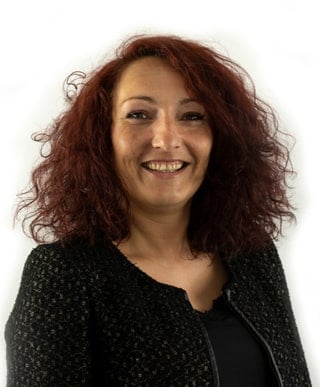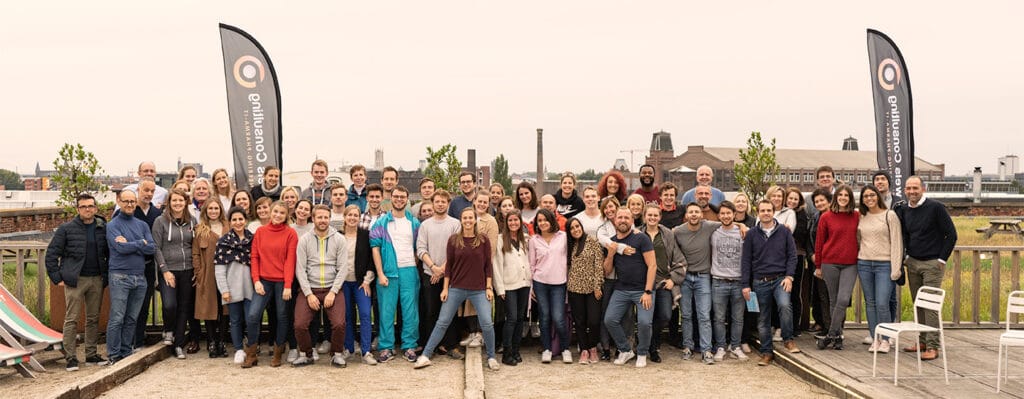Pauwels people
Working in a MSA Technical Compliance team
In our series ‘Pauwels People’, our colleagues introduce themselves and talk about their projects and experiences. Today, we are going to get acquainted with Tom Van Hees, Senior Consultant Engineering Services at Pauwels Consulting.
Hello, Tom. Can you tell us a little bit about yourself?
Of course. I’m Tom Van Hees, I’m thirty-six years old and I live in Zonhoven with my wife and my two daughters Nine and Lore.
What was your education?
I graduated from the Katholieke Hogeschool Limburg (Limburg Catholic University College) as an industrial chemical engineer, with an option for biochemistry.
Why exactly did you choose that course?
I chose industrial engineering because of my interest in technology on the one hand and my interest in medicine and biochemistry on the other. These interests are combined in this course. I also considered it important that an industrial engineering degree would provide a variety of opportunities in the employment market.
What did you do after you graduated?
I have been working in the pharmaceutical industry since 2003. First I worked as a validation engineer at Schering-Plough (now MSD) for nearly five years, then joined Pauwels Consulting in 2008.
How exactly did you get in touch with Pauwels Consulting?
One of their recruiters contacted me with a number of interesting challenges. One thing led to another and I’ve now been a member of the team for eight years.
What projects have you already implemented on behalf of Pauwels Consulting?
Let me think. First of all, I validated laboratory equipment in Pfizer’s chemical lab. After that, I supported the validation of the logic phase (the control of the software) at Genzyme. I was also project leader for a CIP+ project for the Genzyme site. This was an optimisation project for the clean-in-place processes. I have also been a technical compliance engineer at Janssen Pharmaceutica in Geel and have been the leader and single point of contact (SPOC) of the MSA technical compliance team at that company since last year.
What exactly does the MSA technical compliance team at Janssen Pharmaceutica involve?
Pauwels Consulting introduced an initial ‘managed service agreement (MSA)’ at Janssen Pharmaceutica on 1 July 2015, in the context of the law on the employment of third parties. The aim of the MSA is to centralise the recruitment, administration, training, coaching, evaluation and optimisation of external employees and, thus, to limit the number of contractor companies.
“A good team of enthusiastic and flexible people is the most important factor for a successful MSA.”
Tom: The MSA formula has enabled Janssen Pharmaceutica to outsource a number of tasks. An MSA is a flexible formula in which part of the responsibility with respect to external employees is moved from Janssen Pharmaceutica to Pauwels Consulting. A managed service agreement also gives Janssen Pharmaceutica a better overview of the contractor companies it has. Furthermore, the external employees are now centralised, which reduces costs and provides room to renegotiate contracts.
What is your responsibility within the MSA?
I am responsible for receiving applications, the day-to-day management of the compliance team, planning resources, training and allocating the projects we carry out for Janssen Pharmaceutica. As the single point of contact (SPOC) I, together with Mélodie, am the contact person between Pauwels Consulting and Janssen Pharmaceutica for the MSA. I am the point of contact for the team as well as for the client, which makes communication easier.
Which projects are we involved in?
The content of the projects varies enormously, from very small changes in the area of process equipment to large migration projects (Delta V), renovation projects (Plant 3) and constructing a new data centre store.
Together with my colleagues at Pauwels Consulting, I take care of compliance support during these projects. In addition we also support other processes in the MSA, such as:
- PSQR: the periodic review of the qualified status of equipment;
- HAZOP: risk analyses;
- EHS by design;
- handling of calibration deviations.
Finally, there is also a group in the MSA that supports the process validation of technical writing and one person who looks after the qualification of laboratory equipment.
What has gone well in the MSA up to now and why was that?
The results of the MSA have mostly been regarded as very good, so it’s generally working well.
And what has gone less well?
Continuity is important in having the MSA run smoothly, but that isn’t evident. Many compliance engineers have left and/or been transferred to another project, which has meant extra loads on the existing team in the areas of efficiency, new training, etc. The shutdown was very busy and hectic as a result.
How will the approach to those aspects that went less well be different in the future?
There will definitely be sufficient manpower available during the next shutdown. As far as continuity is concerned, I shall be taking engagement and motivation into account even more during interviews. I shall also provide more facilities for discussion.
Do you have any tips for successful MSAs, based on your experience?
A good team of enthusiastic and flexible people is the most important factor for a successful MSA. The client and the single point of contact have to come to suitable agreements about the scope of the MSA, the responsibilities, etc. They also have to have clear agreements concerning roles, they must consult sufficiently and monitor good contact with all their clients.
Thank you for the good advice, Tom, and here’s wishing you success with all your projects!





